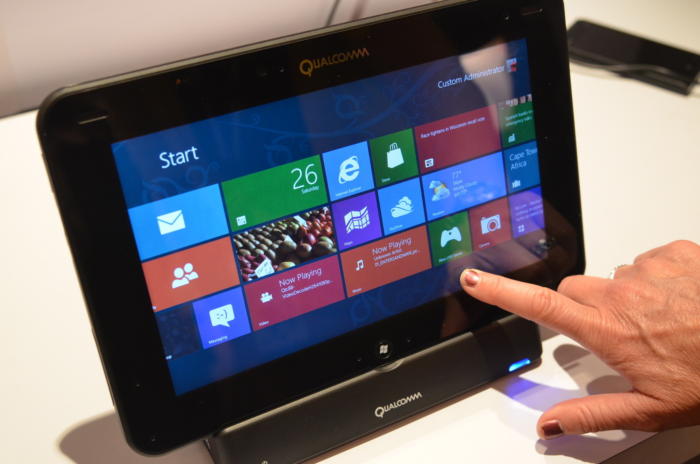
Although traditionally, desktops and laptops running Windows 10 have been powered by Intel and AMD processors, with the ever-evolving nature of competitor hardware like Qualcomm’s Snapdragon line — which uses ARM architecture — that won’t last forever. Indeed, now it seems like we’re mere months away from ARM hardware finding its way to the heart of new Windows machines.
“We have an opportunity to disrupt the existing suppliers of the PC and the data center,” Mollenkopf said during an April 19 earnings call, transcribed by SeekingAlpha (via PCWorld). “Our Snapdragon 835 is expanding into Mobile PC designs running Windows 10, which are scheduled to launch in the fourth calendar quarter this year.”
While that doesn’t signal a crusade against the traditional Windows 10 desktop, it looks like Qualcomm-powered laptops and/or tablets will be coming to the Windows sphere by the end of the year. Considering the Snapdragon processors with their ARM RISC instruction sets are designed around mobile hardware, a highly portable Windows 10 machine would be a good fit for a first generation of Windows device powered by Qualcomm hardware.
We don’t have the complete specifics of such a device, though it has been termed a ‘cellular PC’ and will feature high-end smartphone features like Bluetooth 5 support and possibly even WiGig, both of which are natively supported by the Snapdragon 835 chip.
These devices are likely to be manufactured in small numbers to start with as Qualcomm tests the water to see how popular they would be. However, as a dominant force in the smartphone business, Qualcomm could find expansion into companion markets like laptops and even eventually low-power desktop machines easier in the long run. Qualcomm is already planning to take on Intel in the server market with its Centriq 2400, 48-core server chips.
It also seems like no coincidence that Qualcomm is looking to cosy up to a major platform provider like Microsoft as its relationship with Apple turns sour.



